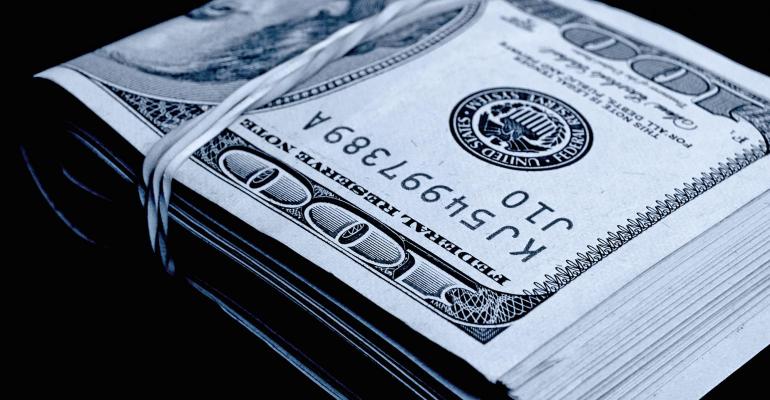By Barry Ritholtz
(Bloomberg Opinion) -- Money gets a bad rap. In the current environment, amid levels of inequality not seen since the 1920s, too many people find it too easy to disparage wealth and the quest for material goods. There is no doubt that lifestyle creep and the hedonic treadmill are not the paths to true happiness. But what we see today is a backlash caused, in part, by the hangover from the 2007-09 financial crisis.
During the run up to the crisis, America went on a debt bender: offer people almost-free money, and they will inevitably use it to buy homes and other goods they believe will raise their standards of living. This is especially true for a consumer population that a) hasn't had after inflation raises in wages in three decades, and b) many of whom previously did not have access to credit or mortgage markets. When it turned out those homes they thought would rise in value fell, and the cost of paying back the cheap loans soared, the end result should surprise no one.
Yes, consumer deserve blame, but they weren't alone. Businesses went on a binge too, and not just on Wall Street. Real estate developers blanketed the country with more shopping venues than the country could possibly need. The U.S. now has more retail space than any other nation -- 7.3 square feet per capita, versus 1.7 square feet in Japan and France, and about six times the level of the U.K. In the post-crisis era, retail has gone through a wrenching retrenchment, with dead malls and vacant store fronts, creating blight in urban and suburban real estate markets alike.
Thus the rise of the spending-and-borrowing nags. This backlash takes several forms, but a few stand out as especially lacking in merit.
Let’s call the first group the spend-shamers. These are the scolds who claim that if you only stop buying coffee or avocado toast you will eventually become rich. (Trust me, you won't.) Spend-shaming often focuses on minutia, while ignoring much bigger issues, like student debt, gender-pay inequality and the lack of real, or inflation adjusted, wage gains.
The so-called FIRE movement is another example. The acronym describes the "financial independence, retire early" lifestyle of radically cutting spending in order save enough and then opt out of the rat race -- because, after all, the quest for money and the things it can buy are ultimately unfulfilling. The idea behind FIRE is that by embracing radical austerity one can theoretically build up a nest egg large enough to retire early, in your 30s or 40s, which then leads to greater happiness. Color me skeptical: I love the idea of financial independence, but consider the horrifying implications of stressing when a house guest takes a little longer than you might like taking a hot shower. (This, by the way, is a real example from the FIRE movement).
Some confusion between happiness and life satisfaction might be at fault here. Happiness has been tied up with money for a long time, so this is an important aspect of the debate. Several researchers in the field have written definitive takes on the issue.
Psychologists and economists have helped resolve some of these issues. Danny Kahneman and Angus Deaton have explained that money buys some degree of happiness, but plateaus rather quickly. They note emotional well-being, or the “quality of an individual’s everyday experience—the frequency and intensity of experiences of joy, stress, sadness, anger, and affection that make one’s life pleasant or unpleasant,” rises with income to about $75,000, then tops out. They also found the opposite to be true -- that people with below-average incomes report a lot of sadness and worry. “Poverty exacerbates the effect of adverse circumstances,” they wrote. It is also true across various countries and cultures. David Leonhardt, writing in the New York Times 2008 before the financial crisis, noted “People in poor countries, not surprisingly, did become happier once they could afford basic necessities.”
The issue of life satisfaction is trickier. Happiness may change day to day, but the broader measure of life satisfaction seems to have a more direct correlation with money. That is reflected in the findings of Justin Wolfers and Betsey Stevenson. Their research found that people with higher incomes tend to report higher levels of life satisfaction. Not only that, but countries report higher levels of happiness as they get richer. Evolutionary history suggests people need some struggle and a degree of accomplishment in that struggle to become fulfilled. Money does not buy happiness, or at least not very much of it. But it does lead to greater life satisfaction, which over the longer term may matter more. And that is a huge reason to appreciate money and what it can do for you.
To contact the author of this story:
Barry Ritholtz at [email protected]
To contact the editor responsible for this story:
James Greiff at [email protected]





